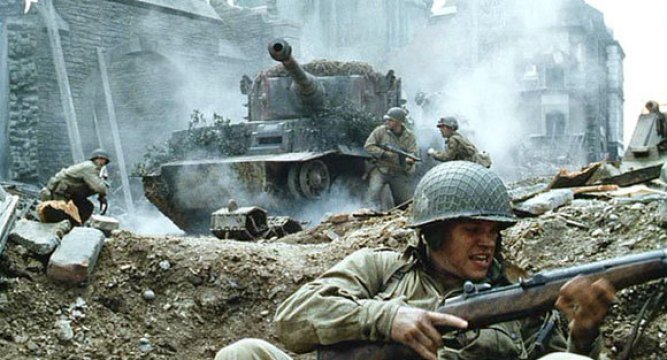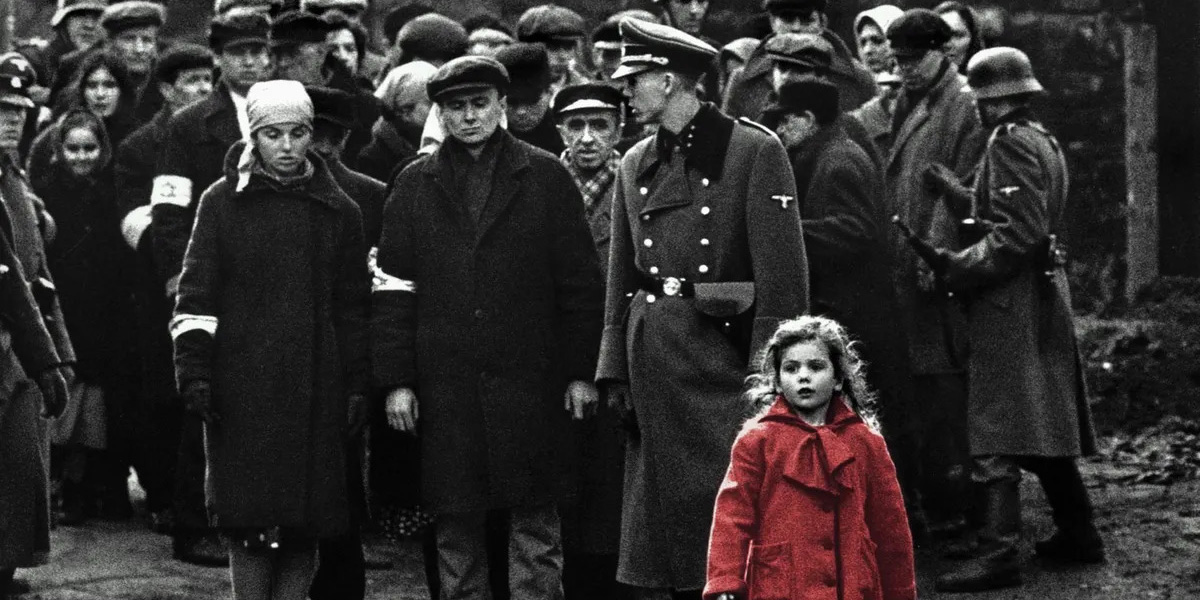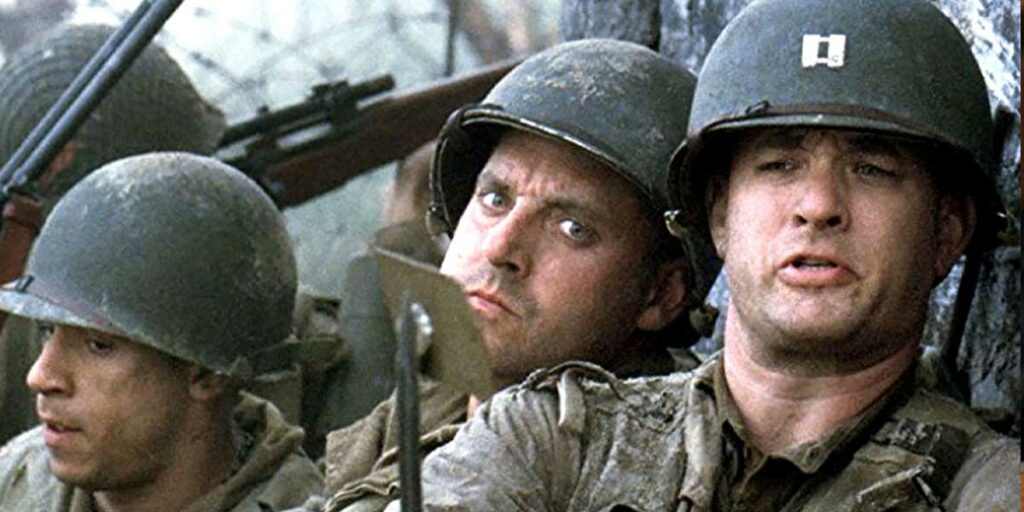Through its immersive narrative and stylistic direction, Saving Private Ryan reminds us of the indiscriminate terror of trench warfare.
This article contains spoilers for ‘Saving Private Ryan’ (1998).
Since the birth of the medium, film has been used as a catalyst for social, political and functional change. Whether that’s through creative narratives that explore otherwise unspoken topics, or even through outwardly exposing audiences to the difficulties of the world, there’s something about film that makes it intrinsically suitable for this kind of social commentary. And one of the topics that filmmakers seem unable to resist, however uncomfortable it is, is war. But it’s not just during wartime conflicts that these films come about. Some of the most iconic and prolific war films there have ever been – think Apocalypse Now or Paths of Glory – are products of a different era, drawn from a time that gives filmmakers more creative liberty, and crafted with the blessing of hindsight. Spielberg’s often-cited ‘masterpiece’ of war cinema Saving Private Ryan is one of these films – a piece of media that, despite depicting a time that is long gone, makes every attempt to immerse its audience in the dark and bloody realities of conflict in order to make these times real again. And by doing so, Spielberg makes one thing excessively clear – there are no winners in war, just those who die and those who don’t.
The first half an hour of Saving Private Ryan is one of the most effective and engaging sequences that Spielberg has ever directed – and that’s tough competition. It follows Tom Hanks’ Captain Miller and his squadron as they land on Omaha Beach and suffer immense casualties after being ambushed by enemy soldiers. The thing that makes this scene so memorable and captivating is the exact same thing that Spielberg uses throughout the movie to promote his personal anti-war ideologies – intense, unrelenting immersion into the scene. We never break away from Hanks’ character for a second, following him with unbroken scrutiny as he navigates the beach and witnesses a huge chunk of his team die and suffer in extremely gruesome ways. But the scene keeps moving, the characters keep on pushing, and the battle is eventually won. It’s hard to imagine a sequence that could make you feel more like a soldier under fire than this one – it defies everything that we’d expect from Hollywood filmmaking and instead opts for violence, chaos and endless bloodshed.

Now, it would be unfair to claim that Spielberg was the first to do this – war films have always had elements of violence and brutality, and it would be pretty difficult to make one that didn’t. But where he deviates from tradition is in the complete lack of spectacle that surrounds the warfare in Saving Private Ryan. There are no theatrically dramatic cries or pristine cinematic explosions in Spielberg’s vision, but rather his soldiers die with a complete lack of fanfare or even sometimes recognition. In doing so, he steps away from the sensationalist nature of moviemaking and makes a very clear statement – his film isn’t just entertainment, it’s real life. The brave soldiers that get shot down on Omaha Beach aren’t just characters in a story – the camera barely even notices them as they lose limbs and writhe in pain – they’re real people and their deaths aren’t just plot points to be dramatized. By making this clear choice to avoid sensationalizing warfare, Spielberg makes it even easier for audiences to feel as though they’re really there on those beaches, rather than watching a constructed film.
Saving Private Ryan is clearly an anti-war film, and you can tell that just by reading the plot summary. It’s about the futility of warfare, the injustice of sending so many inexperienced soldiers to their deaths, and the pure terror that’s bred on the battlefield. But Spielberg doesn’t just show you that, he makes you feel it. His immersive action sequences and clear stylistic choices make you truly feel like you’re there – and that’s the best kind of propaganda there is. It’s one thing to learn about the horrors of war, but to see the carelessness with your own eyes and feel the fear with your own heart, that’s something else – and it makes all the film’s arguments about war so much more persuasive. Audiences rarely connect with films that are too overt with their deeper ideologies, particularly when they’re as political and uncomfortable as Saving Private Ryan’s. But by placing the audience within the confines of the film, Spielberg breaks down that barrier between fiction and reality, making the film’s true meaning impossible to escape from.
Although it’s near-impossible to boil down the ‘meaning’ of Saving Private Ryan into one sentence, Captain Miller’s dying words to Private Ryan himself sum it up best. As he faces his own mortality on the battlefield, Miller lets out two simple but profound words that say more than anybody else ever could – “earn this.” It comes after an absolutely devastating attack from the enemy that sees several of his men killed, even more injured, all in the name of protecting Ryan and bringing him home. It’s one small mission in comparison to the whole of the war, but it’s everything for these men. And that’s exactly what’s so special about Saving Private Ryan. It doesn’t try and condemn war by just showing a huge-scale battlefield with dramatic deaths and big explosions, but it takes the time to develop a small, intimate story that speaks volumes about the personal trials and tribulations that soldiers faced on a daily basis during the war. These men might not have won the war themselves, but they suffer and persevere just as much as those on the front line, and as Miller’s dying words command, they earn their place in history.
Saving Private Ryan is now available on Digital, Blu-ray & DVD. Read our reviews of Steven Spielberg’s The Fabelmans, West Side Story, Jaws, Jurassic Park, Duel, Schindler’s List, E.T. the Extra-Terrestrial, and The Terminal, and find out why Catch Me If You Can is a Christmas Movie.

 loudandclearreviews.com
loudandclearreviews.com
